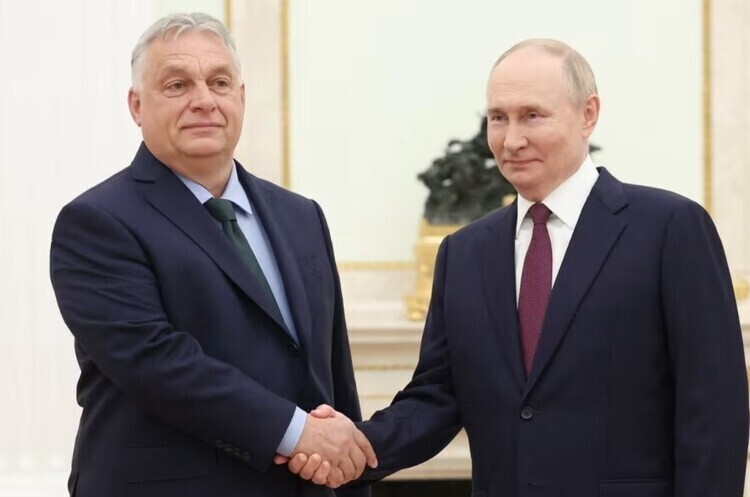After his visit to Putin, Orban published an article in which he accused NATO of "abandoning peace" and "supporting war"
He said that today it is NATO that is fuelling "military confrontation with other global geopolitical centres of power"

NATO would be committing suicide if it chooses war over peace, Hungarian Prime Minister Viktor Orban said in an article for Newsweek, which came out the day after Orban travelled to Moscow to meet with Russian dictator Putin.
The Hungarian prime minister believes that NATO's future will depend on the bloc's ability to preserve and maintain peace, as the "most successful military alliance in world history" began as a peace project.
"But today, instead of peace, warfare is on the agenda, and instead of defence, offence is on the agenda. All of this is contrary to NATO's core values," the prime minister wrote in the article, stressing that the alliance is "approaching a turning point."
Orbán added that Hungary, after the dissolution of the Warsaw Pact, immediately began negotiations on joining NATO, as the bloc was attractive because it "finally joined a military alliance that was committed not to war but to peacekeeping."
But today, according to Orban, "more and more voices within NATO are talking about the need or even the inevitability of a military confrontation with other global geopolitical centres of power".
The politician recalled news reports that allegedly stated that NATO "has begun preparing for a possible military operation in Ukraine". He noted that the alliance should not be afraid of an "external enemy", but of a departure from the values that underpin the bloc.
"An external enemy, if it has any sense, would not dare to attack a NATO member state. <...> If NATO chooses conflict over cooperation and war over peace, it will commit suicide," Orban wrote in the article. Finally, the Hungarian prime minister called for the bloc to be preserved as a "peaceful project".
The day before, the head of the Hungarian government visited Kyiv and Moscow, where he met with the presidents of both countries. He called his trip a "peaceful mission".
Following his visits, Orban noted that the positions of Moscow and Kyiv are "very far from each other" and that "many steps need to be taken" to bring the conflict to an end. At the same time, he stressed that the most important step on this path has already been taken: Hungary has established contacts with the parties.
During his conversation with Zelenskyy, Orban suggested that he consider a ceasefire to start a peace process with Russia. The Ukrainian president's office rejected this proposal.
Background. Read more about how an unprecedented meeting between a European leader and Putin has strengthened Russian propaganda in Mind's article "Hungary played along with the Kremlin: How Orban's visit to Moscow angered the West".
According to analysts, the flaunting of the EU representative at Putin's reception destroyed the image of the Russian leader as a pariah wanted by the International Criminal Court. This undermined Western efforts to isolate the dictator, who is accused of war crimes. The visit of the Hungarian prime minister to Moscow showed that, no matter how Russian politicians behave, even European countries cannot isolate them, the article says.
If you have read this article to the end, we hope that means it was useful for you.
We work to ensure that our journalistic and analytical work is of high quality, and we strive to perform it as competently as possible. This also requires financial independence. Support us for only UAH 196 per month.
Become a Mind subscriber for just USD 5 per month and support the development of independent business journalism!
You can unsubscribe at any time in your LIQPAY account or by sending us an email: [email protected]



